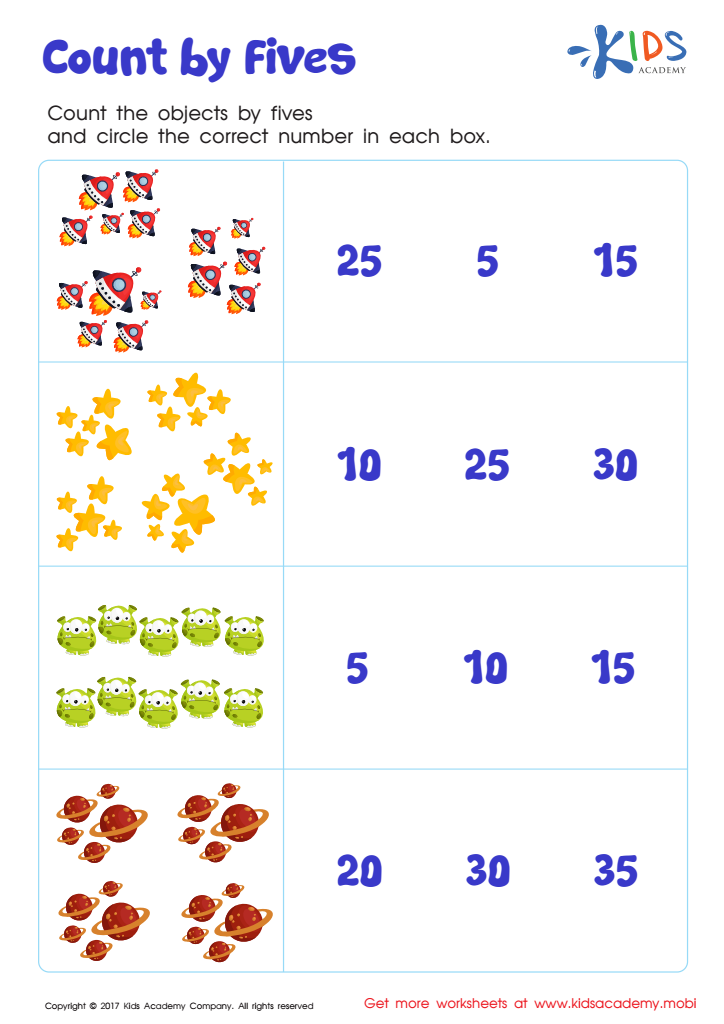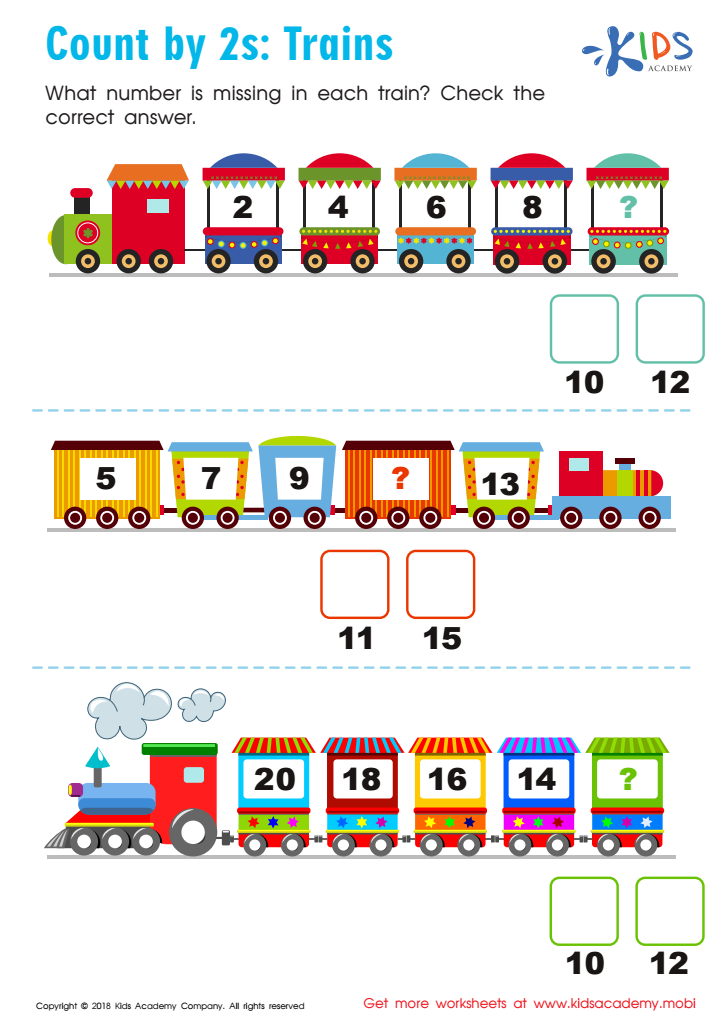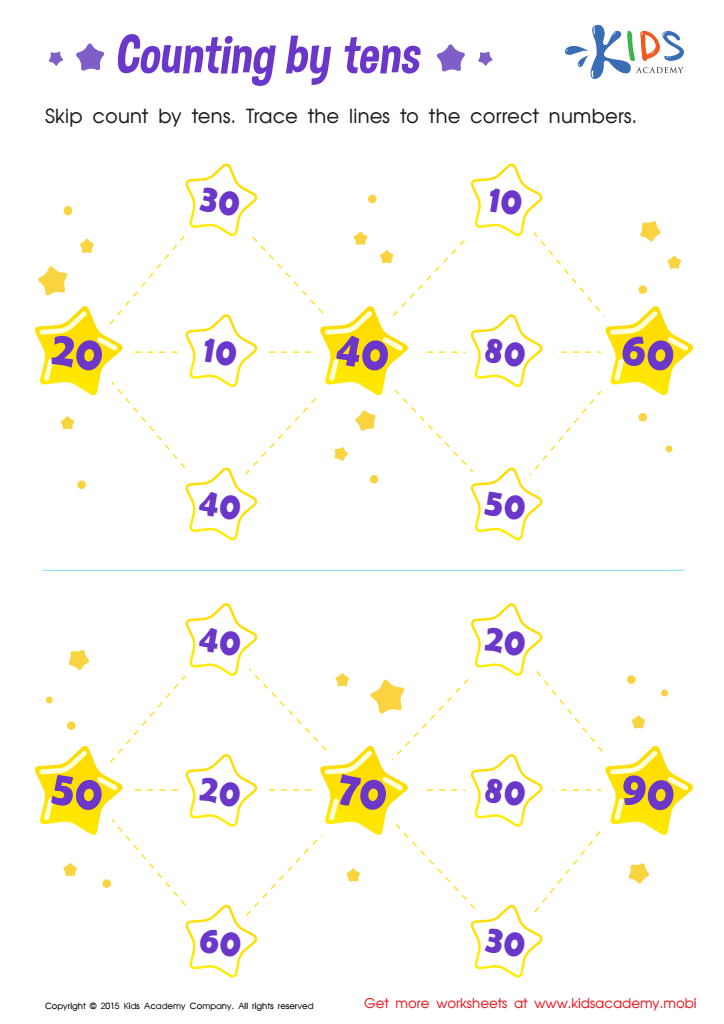Number Recognition Skip Counting Worksheets for Ages 3-9
3 filtered results
-
From - To
Discover our engaging Number Recognition Skip Counting Worksheets, specially designed for children aged 3-9! These dynamic resources help young learners master essential counting skills while enhancing their number recognition abilities. Kids will enjoy fun activities that incorporate colorful visuals and interactive elements, making learning enjoyable and effective. Our worksheets encourage skip counting by 2s, 5s, and 10s, laying a solid foundation for future math concepts. Ideal for home practice or classroom use, these worksheets are perfect for building confidence in early learners. Empower your child’s mathematical journey today with our thoughtfully crafted and accessible worksheets!


Skip Counting by 5s: Space Math Printable


Count by 2's: Trains Worksheet


Learn Dozens: Counting by Tens Printable
Number recognition and skip counting are foundational skills that play a crucial role in early childhood education for children aged 3-9. These skills not only lay the groundwork for future math concepts but also bolster cognitive development and critical thinking.
Number recognition enables children to identify and understand numbers, which is essential for their overall numeracy skills. Recognizing numbers helps young learners make connections between mathematical concepts and the real world, fostering a sense of competence and confidence in their abilities. This skill supports literacy and communication as children start to relate numbers to their daily experiences.
Skip counting, on the other hand, enhances understanding of number patterns and sequences, which are vital for addition, subtraction, counting, and even multiplication later on. By practicing skip counting, children develop their ability to group numbers, recognize multiples, and identify relationships between various values. This skill aids in developing mental agility and supports problem-solving abilities.
Furthermore, as children engage in activities involving number recognition and skip counting, they enhance their fine motor skills and promote social interactions through collaborative learning experiences. Therefore, parents and teachers should prioritize these skills to ensure a strong mathematical foundation, better preparing students for future academic challenges and lifelong learning.
 Assign to My Students
Assign to My Students






%20(1).jpg)

.jpg)











